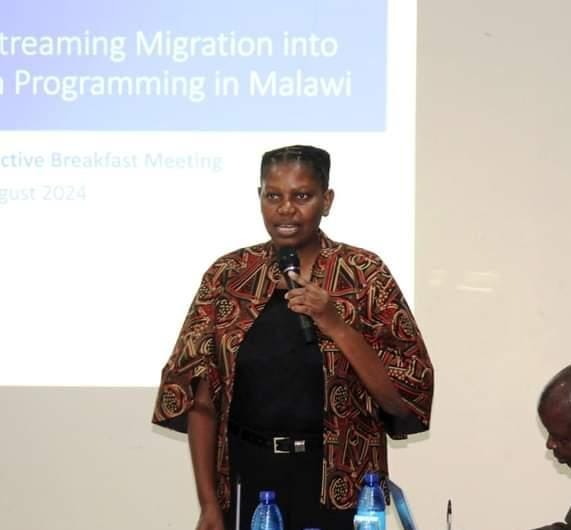IOM Study Reveals Rise in STDs in Malawi's Lake Shore Districts
IOM, committed to supporting the Malawian government's migration agenda, is working to address these issues.
Lilongwe, Malawi - A recent population mobility mapping conducted by the International Organization for Migration (IOM) in the lake shore districts of Mangochi, Salima, and Nkhatabay has revealed an increase in sexually transmitted diseases (STDs) in these areas, writes Martin Kamlaike.
Nomagugu Ncube, Chief of Mission for IOM Malawi, disclosed this Friday at a breakfast meeting in Lilongwe, where IOM Malawi engaged with media and stakeholders in the migration sector.
Ncube attributed the rise in STDs to the influx of people during the fishing season, which puts a strain on already stretched resources and services.
“The population tends to shoot up during the fishing season more than what the district uses in their planning and projections,” Ncube said.
“And this creates an increased demand for services and has the potential to exhaust much quickly the supply of services that are available in the district.”
While unable to provide an exact percentage for the increase in STD transmission, Ncube revealed that 25% of cholera cases in Malawi are concentrated in the lake shore districts, highlighting the vulnerability of these areas to health challenges.
IOM, committed to supporting the Malawian government's migration agenda, is working to address these issues.
“Malawi is a Global Compact on Migration champion, and the government of Malawi has committed to advancing humane and orderly migration management for the benefit of not just migrants but society as a whole,” Ncube said.
Hans Katengeza, Deputy Director of Reproductive Health at Malawi's Health Ministry, welcomed the study's findings, stating that they will inform the ministry's policies and address gaps in service provision.
“From the findings of the study that was done in Nkhotakota and the lakeshore, one of those areas that we take interest in is to get the findings and then look into our approaches and guides to see how best we can incorporate those findings,” Katengeza said.
The ministry, he added, will build on the IOM's findings to address the shortcomings identified in the study.




